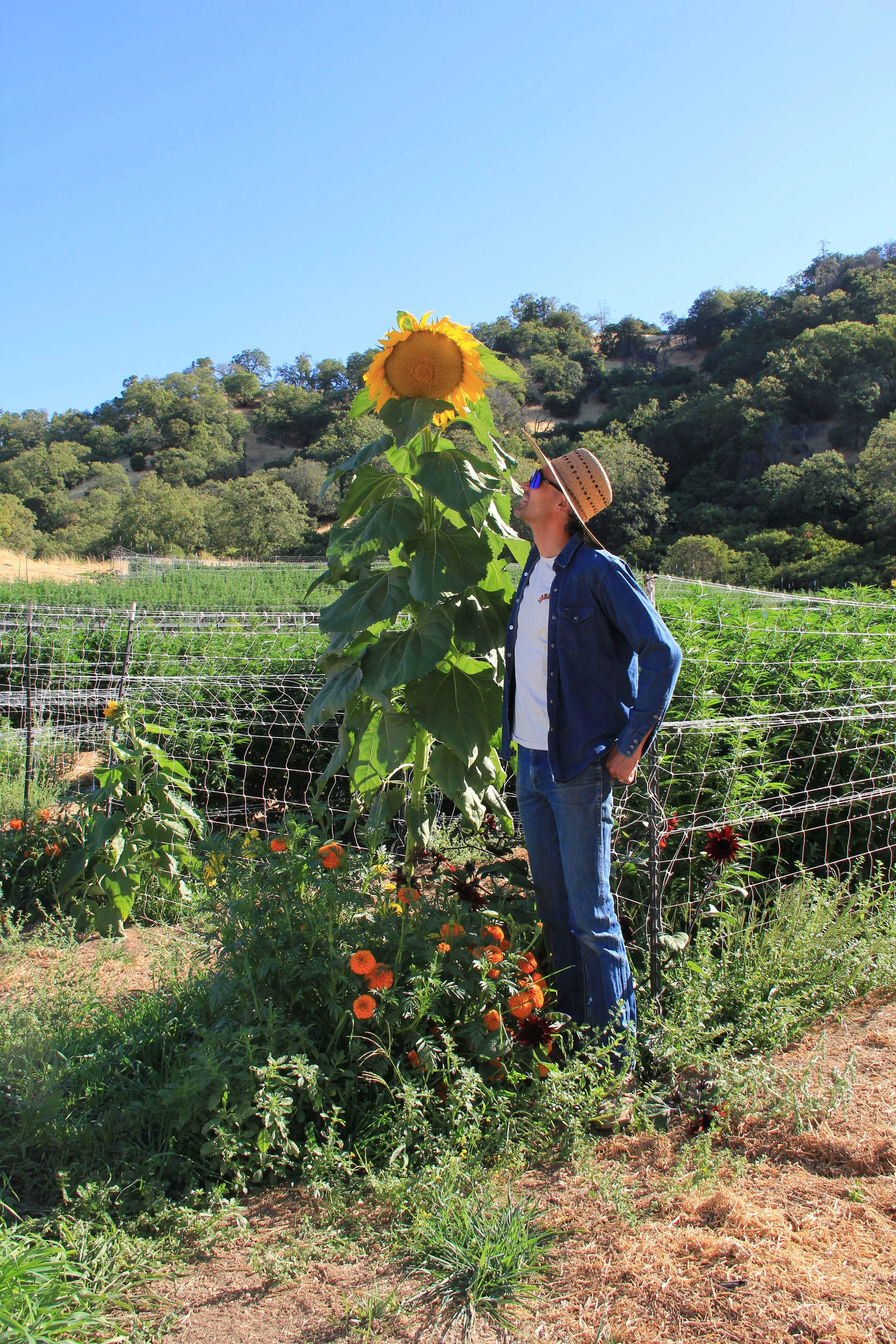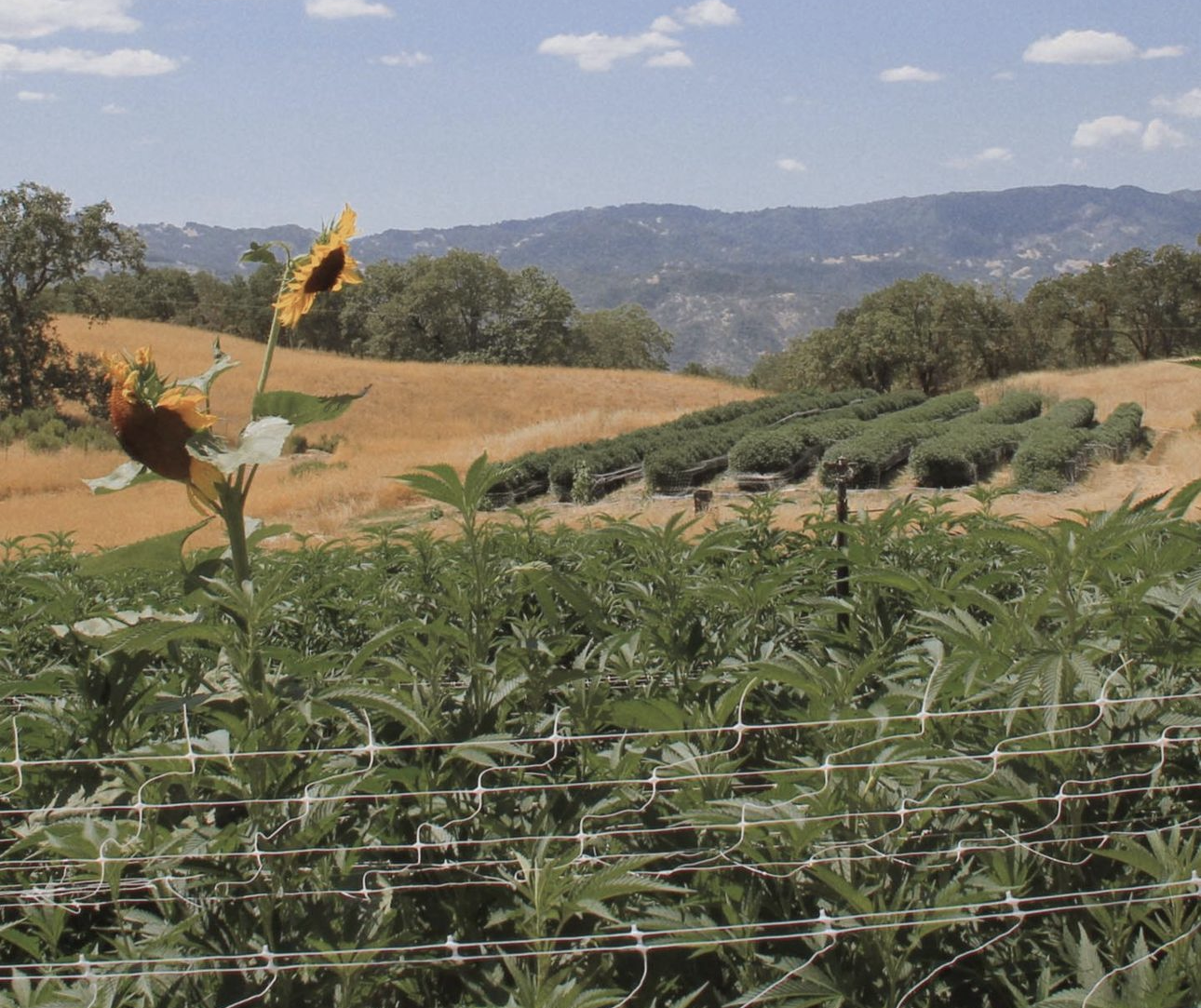SUNFLOWERS
Cover crops and companion plantings offer a wide variety of benefits not only to soil composition and health but also to the plants themselves. Among the mix is a wide variety of sunflowers, marigolds, daisies, zinnias, dill, and calendula (some corn too for good measure!). These plants have been chosen for their specific beneficial properties and to increase diversity in our fields.
As cannabis farmers, we are mono-croppers, and we must try and minimize the effects of this on our environment and the quality of our soil. Luckily there are several tools at our disposal. Primarily is cover-cropping that introduces variety into our crop rotation which provides us with all of the benefits of increased organic matter, reduced compaction, and greater overall nutrient retention.
Secondly is the use of ruminant grazing. This year it was cows, which adds a natural fertilizer to our gardens and increases the microbiological diversity of the soil. Not only does rotational grazing benefit our particular patch of land, but across the property they help to eliminate invasive grasses and promote the abundance of native plant species by giving them a leg-up against other plant species that might choke them out. This leads to greater biodiversity and more opportunities to support overall pollinator populations.
Then lastly is companion plantings. These specific plants lend unique properties to our gardens and also help cut back on the redundancy of row after row of big beautiful cannabis buds and help us to fight off nasty pests that would traditionally be blasted with chemical and systemic pesticides under traditional farming methods.
All of these plants work in cohesion to create an environment that is favorable to growing “clean” cannabis products.
HOW TO GROW
Sunflowers are literal beacons to pollinators. They stand high and tall and grow in many bright flashy colors that attract many native birds, bees, and butterflies. All of these little buddies help to lend to a diverse and resilient environment for our cannabis plants to flourish. Sunflowers also help promote the growth of Mycorrhizal fungi. Mycorrhizal fungi are beneficial fungi that form a symbiotic relationship with the roots of other plants and are essentially one of the “living” parts of living soil.
Sunflowers also help with weed suppression, which can be tricky to combat with the way we farm (row cropping in native soil, while trying to co-exist with the natural habitat we are blessed to foster). Besides their stature which naturally out-competes weeds, they are known to release allelopathic chemicals from their roots that naturally suppress weed growth.
Plant seeds in full sun, directly in soil after all threat of frost has passed, 1/2-1” deep and 6-12” apart.



